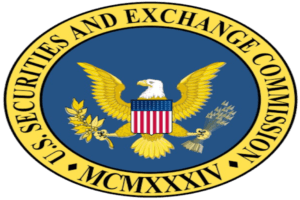
The Securities and Exchange Commission is revising corporate disclosure requirements for the first time in more than 30 years. The Commission voted last week to adopt amendments that will modernize the description of business, legal proceedings, and risk factor disclosures that registrants are required to make pursuant to Regulation S-K.
The SEC says it is updating these items to reflect the many changes in U.S. capital markets and the domestic and global economy in recent decades.
The modernization of Items 101, 103, and 105 is intended to elicit improved disclosures, tailored to reflect registrants’ particular circumstances. The SEC says these changes will improve disclosures for investors and add efficiencies to the compliance efforts of registrants. The amendments are also intended to improve the readability of disclosure documents, as well as discourage repetition and reduce the disclosure of information that is not material. For example, the updated disclosure requirements would hopefully end the release of boilerplate disclosures on such items as risk factors that are more legal than material in nature.
“Today we modernized our public company business disclosure rules for essentially the first time in over 30 years,” said SEC Chairman Jay Clayton. “Building on our time-tested, principles-based disclosure framework, the rules we adopt today are rooted in materiality and seek to elicit information that will allow today’s investors to make more informed investment decisions. I am particularly supportive of the increased focus on human capital disclosures, which for various industries and companies can be an important driver of long-term value. I applaud the staff for their dedication and thoughtful approach to modernizing and improving these rules and adding efficiency and flexibility to our disclosure framework.”
Many of the amendments reflect the Commission’s long-standing commitment to a principles-based, registrant-specific approach to disclosure, it said in a press release on the change in disclosure requirements. These disclosure requirements, while prescriptive in some respects, are rooted in materiality and are designed to facilitate an understanding of each registrant’s business, financial condition, and prospects.
The rules are designed for this information to be presented on a basis consistent with the lens that management and the board of directors use to manage and assess the registrant’s performance. The modernization of Items 101, 103, and 105 is intended to elicit improved disclosures, tailored to reflect registrants’ particular circumstances, which are designed will improve disclosures for investors and add efficiencies to the compliance efforts of registrants. The amendments are also intended to improve the readability of disclosure documents, as well as discourage repetition and reduce the disclosure of information that is not material.
The amendments will next be published in the Federal Register and will take effect 30 days after that publication. ![]()

